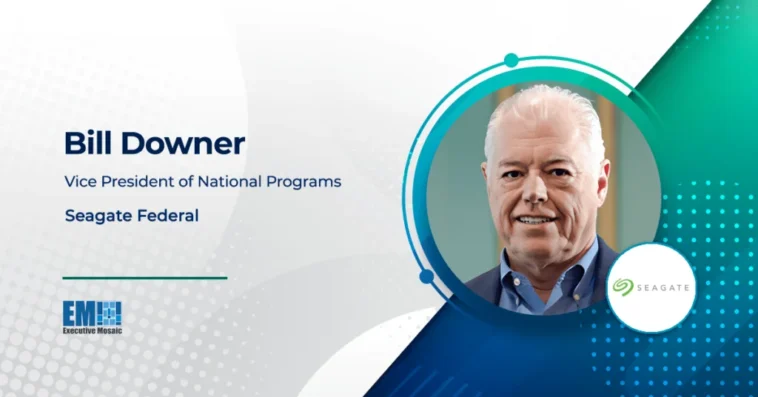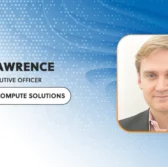Bill Downer, vice president of national programs at Seagate Federal, believes “the edge is everywhere,” no matter where the data is collected and stored. He is a strong advocate for defending data at rest, and in his role at Seagate, he leads the company’s delivery of secure data storage products to federal agencies.
In a recent Executive Spotlight interview with ExecutiveBiz, Downer offered a look into Seagate’s most impactful partnerships, discussed emerging cyber threats and shared his insights on zero trust.
How is Seagate leveraging partnerships with other businesses to create secure cross-domain solutions for federal organizations?
We have several partnerships that are particularly important to us. One of these is with Ball Aerospace, which sees the need to store more data in various places in space – most notably in low earth orbit and middle earth orbit – which allows us to put this data storage right next to the sensors with some processing capabilities so we don’t have to send all of the raw data back, but we can send pre-processed data that’s compressed back, freeing up more bandwidth on the downlinks.
We could not have understood the requirements for putting storage next to all the sensors without our partnership with Ball Aerospace. They had the vision that we needed to bring commodity products to space, and they have been leading us on what kind of data storage devices we need to create at Seagate that leverage our forty plus years of existence in building commodity storage devices and bringing that knowledge and capability to space.
Another partnership I would highlight is our partnership with CACI, which has a product called Archon that provides secure edge devices that are used for accessing classified sites. In a partnership with the DOD, CACI has defined the need for a server that uses all the Data at Rest (DAR) capabilities of NSA’s Commercial Solutions for Classified (CSfC) certified technologies to protect the data. Through this partnership, Seagate Federal, along with other partners, have provided secure enterprise storage devices inside of a Dell server to create this secure server solution for the DOD.
What do you think is the biggest threat facing U.S. cyber systems today, and what can be done to protect against that threat?
To me, the largest attack surface remains the data at rest. U.S. agencies have certainly done a great deal of work to create standards and technology to protect the networks, but the reality is that data is at the most risk when it is at rest on a storage device.
Seagate Federal is focused on creating easy-to-use security technologies that are difficult for nation states to compromise, whether it is using multifactor authentication or dual encryption on the storage device. Seagate Federal has been collaborating with various partners to secure the data at rest and protect it from these very near-peer adversaries that have been trying to get our information.
Do you think the United States’ cybersecurity efforts are keeping up with demand? If not, how can we accelerate and broaden cybersecurity?
There were already so many threats out there, and now, with AI creating a whole new dimension of threats, it is difficult for any organization to keep up with the constant development of evolving threats. The U.S. government does an incredible job of trying to help keep industry aware of threats from all entities, but I think at some level, it is impossible to be agile enough to keep up with all these threats.
Data is coming in from an expanding network of connected sensors and devices. How does cybersecurity (and specifically zero trust) factor into the data conversation?
I define zero trust as not trusting any users or connections at any point and constantly testing for attestation or data provenance. The users need to know and need to be very dynamic at every level.
Seagate Federal provides zero trust down to the band level of a storage device using multifactor authentication and dynamic key management. The U.S. government and its agencies must be able to take advantage of the ability to do zero trust at every level and with any kind of system.





